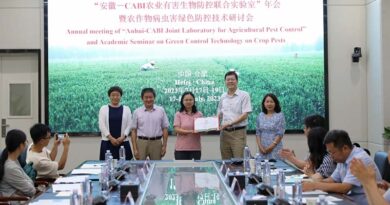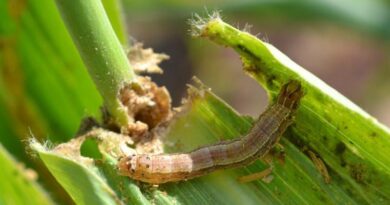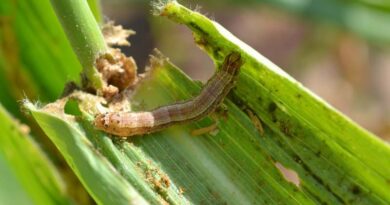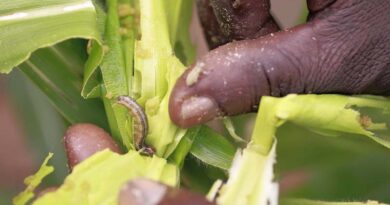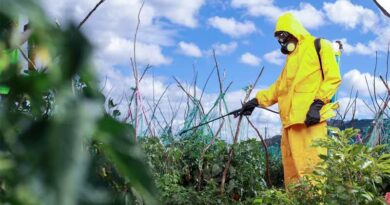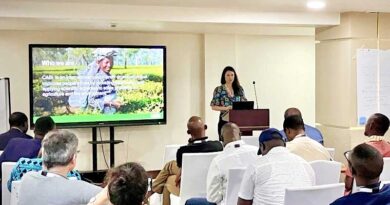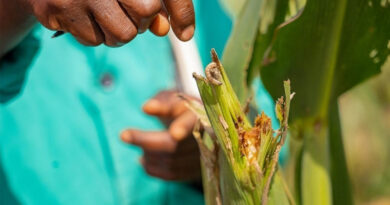Study Confirms Efficacy of Three Insecticides to Fight Fall Armyworm as Part of Integrated Pest Management
18 June 2024, Africa: A new study conducted has confirmed the efficacy of three insecticides to fight the fall armyworm pest as part of an Integrated Pest Management (IPM) plan.
The research was carried out by scientists from Anhui-CABI Joint Laboratory for Agricultural Pest Control, Institute of Plant Protection and Agro-Products Safety, Anhui Academy of Agricultural Sciences, in collaboration with the MARA-CABI Joint Laboratory for Biosafety and CABI.
The investigation assessed the possible sublethal effects of insecticides tetrachlorantraniliprole, spinetoram and lufenuron on the biological parameters of the fall armyworm (Spodoptera frugiperda).
It found that tetrachlorantraniliprole, spinetoram and lufenuron increased egg reproduction of the fall armyworm but negatively affect larval survival rate, and spinetoram and lufenuron caused early maturity.
Negative impacts on the life table parameters of fall armyworm
The results of this study, published in the journal Crop Protection, suggest that low-lethal concentration exposure to insecticides negatively impacts the life table parameters of S. frugiperda and those three insecticides from different modes of action cannot cause resurgence of the pest.
Dr Feng Zhang, a co-author of the study and CABI’s Regional Director, East & South-East Asia, said, “These findings are helpful for researchers working on the management of S. frugiperda using chemical pesticides as part of an IPM programme that also includes environmentally friendly biological control agents.”
S. frugiperda, a native pest of tropical and subtropical regions of the Americas, is an invasive species now present in all continents. It causes significant reductions in maize yields – the preferred crop – of around 20-50%.
It is estimated that, in 12 countries of sub-Saharan Africa, up to about US $6.3 billion of crop losses could be caused by S. frugiperda every year – seriously impacting the food security and livelihoods of smallholder farmers of the invaded area (Day et al. 2017).
Insecticides had a significant effect
Sublethal effects of insecticides cause biological effects that disturb the developmental time, larvae survival rate, adult longevity, and oviposition in S. frugiperda. The egg hatching rate, larval survival rate, and net reproduction rate after treated by pesticides were lower than those of the control.
Dr Haoling Chen, a corresponding author from the Anhui-CABI Joint Lab added, “It is likely that S. frugiperda treated with low-lethal concentrations of tetrachlorantraniliprole, spinetoram, and lufenuron cannot cause resurgence based on our findings.
“The insecticides of tetrachlorantraniliprole, spinetoram, and lufenuron not only form different modes of action, but are also recommended by the Ministry of Agriculture and Rural Affairs of China to control the fall armyworm in China.
“Our results are clear that those three insecticides can be used to control the fall armyworm.”
Also Read: Adoption of Agricultural Drones in India
(For Latest Agriculture News & Updates, follow Krishak Jagat on Google News)


